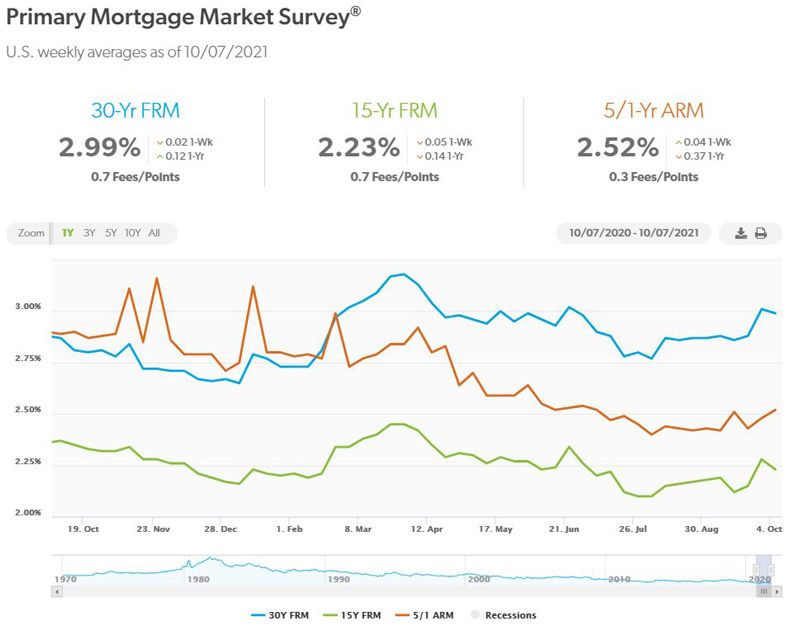
What this Week’s Data Means:
Early fall is usually the best time of year for buyers to purchase a home, with the nationwide optimal time for homebuyers expected to be this week. With September inventory hitting 2021 highs, this season holds promise even though one of the big take-aways from this week’s data is that weakness in the number of homeowners listing their homes for sale continues. The decline in new sellers hasn’t sparked renewed price upticks or faster time on the market than we’ve seen in recent weeks–the usual seasonal trends toward slowing are there. However, without as many new homes coming up for sale, the steady, gradual catch-up inactive inventory we’d observed has faded.
Key Findings:
- The median listing price grew at 8.6 percent over last year for the third week in a row. After an early-September uptick, home price growth has shifted back into the high single-digit territory and has shown sticking power. Home prices continue to rise due to a mismatch between supply and demand, stemming from a decade-long shortage of homebuilding. While the rate of advance for the median home listing has slowed, asking prices for typically sized single-family homes continue to increase at a double-digit pace, not far behind this summer’s record-high home sales price growth. This means that housing affordability will be an increasingly important consideration for buyers.
- New listings–a measure of sellers putting homes up for sale–were down 8 percent from last year. Two weeks ago we noted that the market appeared to be at a turning point and that buyers and sellers would determine the path forward for sales. Last week, we saw weak new seller participation, and this week’s housing inventory data continues the trend. New listings have declined in 4 of the last 5 weeks after gaining more often than not in the previous 5 months. With ‘finding the right home’ still a critical buyer pain point due to the limited availability of for-sale homes, this metric has an outsized impact on the future trajectory of home sales.
- Active inventory continues to fall short and is down 22 percent from a year ago for the fourth straight week. With new listings slipping again, the improvement in the inventory gap has stalled after improving fairly consistently since April. As the trend in new sellers has weakened, it’s harder for active inventory to grow as long as shoppers are still actively buying homes.
- Time on the market was down 8 days from last year. Homes continue to move faster than one year ago, and in fact, the speed has improved so much that every week since mid-March has had a lower time on the market than the fastest-selling week in 2020. But if you didn’t make your move last year, don’t despair. In 2020, homes sold fastest in September and October, but we typically see the lowest time on the market in summer. This June, the typical listing was on the market for a record fast of 37 days, and we saw that figure inch up by 1 day each month in both July and August. In September, time on the market was up another 4 days from August. In 2021, housing has stuck closer to its typical trends, which implies more slowing in the weeks ahead. Homebuyers will have more time now compared to earlier in the year, to make decisions, yet another reason that the best time of year to buy a home is this week.
Realtor.com


